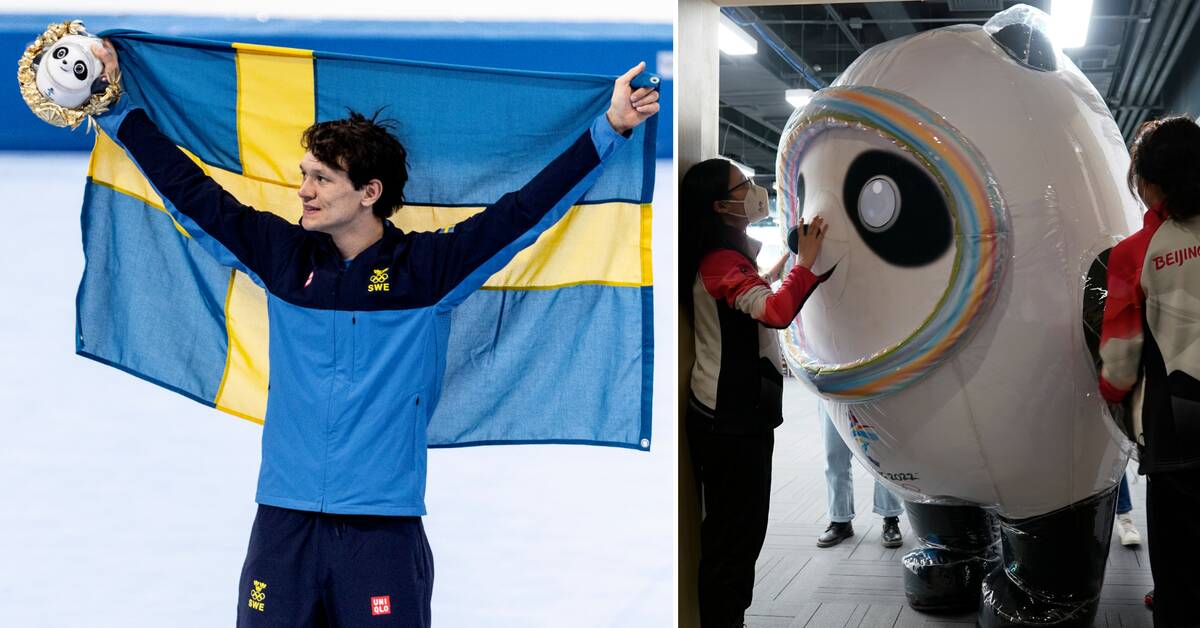Immediately after the Olympic competitions have been decided, the athletes will be on the podium for photography.
Since the medal ceremonies are often held later in the evening, the athletes may instead wave the panda Bing dwen dwen.
"Bing" means ice, while "dwen dwen" stands for a kind of childlike liveliness.
The mascot is designed by the Chinese designer Cao Xue.
About 500 sketches ended up in the trash before the figure sat as it should, Cao Xue has said in interviews with Chinese media.
- It should represent kindness and naivety or a kind of childishness.
It is both high tech and a little space with cute colors.
It is disarming, says Tilde Lewin.
Panda diplomacy
The use of pandas is a common practice in Chinese foreign policy.
The country's giant pandas are seen as a national treasure: an uncontroversial symbol that anyone can stand behind, and people are happy to lend their animals to foreign zoos to build good relationships.
- China began to use pandas in its foreign policy as early as the 1950s.
It's super classic, says Tilde Lewin.
The symbolic value of the previously endangered animal has been so strong that the positive news about the panda's good recovery is said to have been received with some disappointment by the Chinese government.
"Do not want the games to be politicized"
Media coverage of the Beijing Winter Olympics has partly revolved around China's human rights abuses and the lack of freedom of expression.
Bing dwen dwen can be seen as a piece of the puzzle in the work of showing another image.
- China probably does not want the games to be politicized.
You want a harmless, non-confrontational and friendly image.
It can be said that this panda represents, says Tilde Lewin.
"One Dwen per household"
There are also many indications that the panda has become a sales success in China.
The Guardian reports on rushing to the souvenir shops and that the animals are sold out in many places.
The newspaper writes that some stores apply the rule "One Dwen per household", something that sounds familiar in the country that until 2015 was engaged in a different type of family planning.

